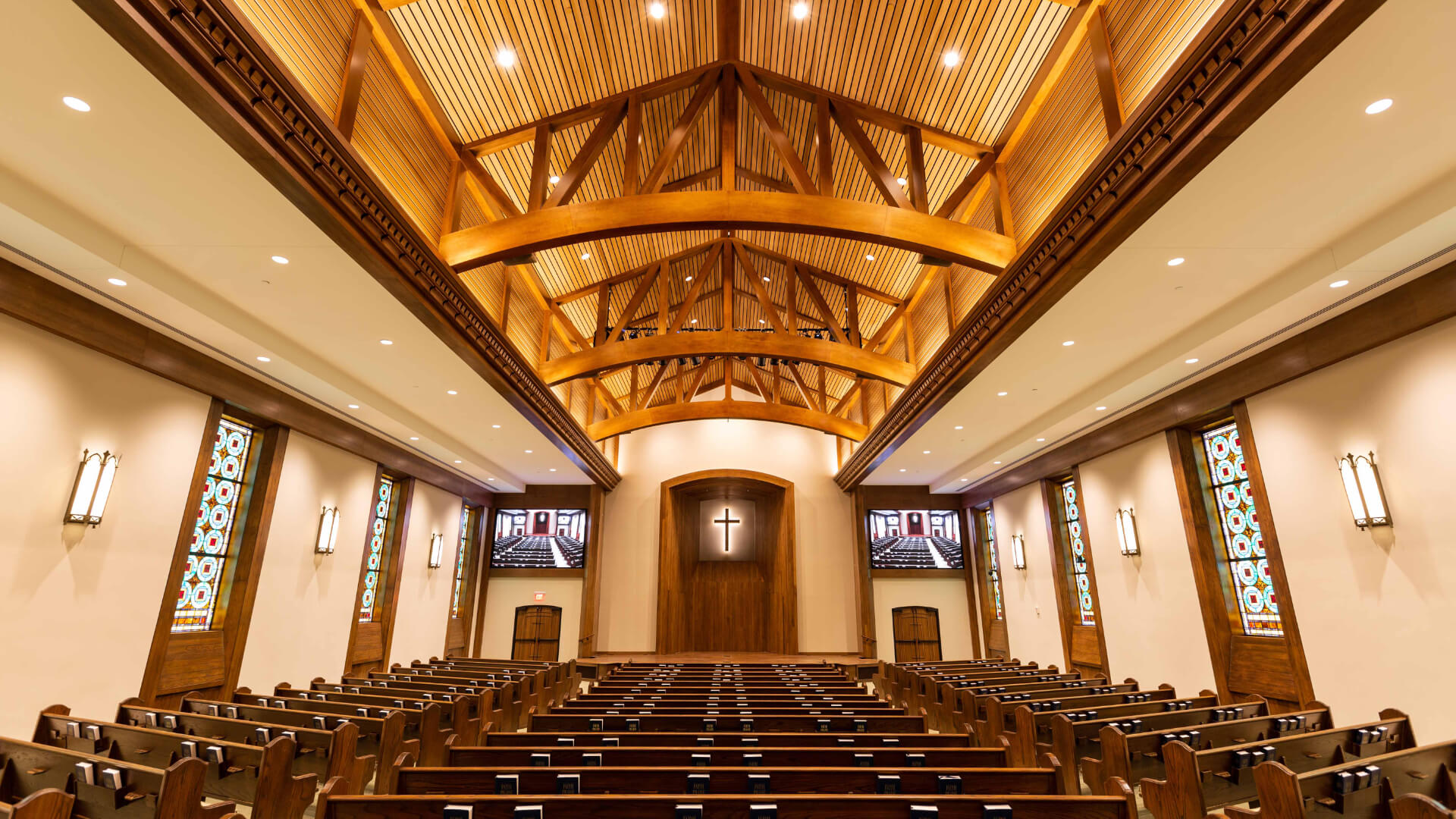Throughout a church’s life, inevitably, there is a need to improve or revitalize the buildings on your campus. I would like to suggest 4 tips in selecting a faith-based architect for this important, ministry-driven work.
1. Hire Someone who understands YOU
Select and contract with a firm whose goal is to understand your ministry first. The lead architects within the firm should generally understand ministry and how your specific ministry functions. Although there are many rules of thumb available to plan church facilities, I have found that in the end how you do ministry and understanding that is all that really matters. Having worked with over 350 churches there are many common ministry overlaps. Yet, it is very apparent each church has a very distinct calling, which inevitably affects and informs the design of their facilities. You are a key component in the design process so be certain that your voice is heard. In addition to your ministry, look for someone who understands your community’s needs. The intersection of church and the community it serves is critical to what you want reflected in the new design.
2. Require specific experience with church facilities
For existing building renovations and additions, your architect needs to understand how they function to identify code and lifecycle issues that exist within them. There are many pitfalls and cost implications that are associated with building code compliance, including ADA accessibility concerns. Planning and zoning processes for additions, and/or new buildings, are typically needed in your municipality for a building permit and/or community approval. A team with a lot of mileage in this area is helpful in creating a more direct path of success in navigatating the regulatory processes which you may not be familiar with in your own city or town.
3. Employ an architectural firm with scalable contracts.
Bring on a firm that can provide you with both an initial scope contract and then, as second step contract for permit documents. I have found that church leadership desires a due-diligence step of initial services which flushes out the main issues, provide phased plan(s) addressing current and future growth needs, has a couple of schematic plans with renderings and construction cost ranges for the various phases. All of these deliverables are generally needed for visual and informative communication to the church body and for any planned capital stewardship campaign. An architect versed in faith-based architecture can recommend a variety of stewardship companies to you, if you do not have your own references. Once scope, budget and funding align this is the best time for your architect and their consultant team to provide a final, tailored contract proposal for their services adapting the project for permitting and, ultimately for construction. It is very likely the firm assisting the church in the initial scope contract is investing a great deal of time and resources to help the church get to the second step. That said, it is generally expected the church will not bid those initial design services or switch to another design firm to finish the project without very good cause.
4. Faith-Based Consultants and your Construction Side Partner
A faith-based architect will complete and prepare a set of construction/permit documents with material selection(s), schedules for doors, windows, and wall types, drawing details of specific materials, building elements, and building section views that will be submitted to the local building authority for permitting. Having a full team of consultants for structural, mechanical, plumbing, electrical, fire protection and interior design is key. It is very important the right AVL (audio, visual, lighting) consultant integrates important ministry objectives via technology throughout the facilities. If the church is completing an addition or new build, a qualified civil and landscape architecture firm are key component consultants to the overall success of the project as well.
It is highly recommended that during the design process you, in conjunction with your architect, select a general contractor that will ultimately build the project. Many GC’s provide pre-construction services for little-to-no cost during the design process which helps the team align the overall project to your budget. They do so with anticipation, that once final construction documents are complete and the cost of the project is aligned, they will be able to sign a construction contract with you to begin work on your ministry-driven project.
Though seemingly a daunting task, selecting and hiring the right faith-based architecture firm will in the long run pay dividends, both in the final building project, and, in peace-of-mind during the entire process. A faith-based architect can provide guiding leadership with years of experience and wisdom to help your church reach its ministry goals. All God’s best as you prayerfully consider the right architectural firm for your project.
Novus Architects was founded in 1992 by one architect working for one client. It didn’t take long to grow as the demand also grew for our creative process and commitment to exceptional customer service. Today, with offices in Atlanta, Asheville, Charleston, Charlotte, Jacksonville and St. Thomas USVI, Novus has a mission to create highly functional, beautiful spaces that are more than brick and mortar, or fixtures and furniture – spaces that foster human interaction, discovery and deep connection.
For all media inquiries, please visit our contact page.

